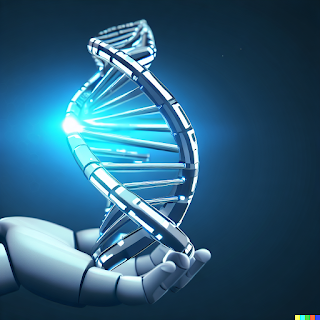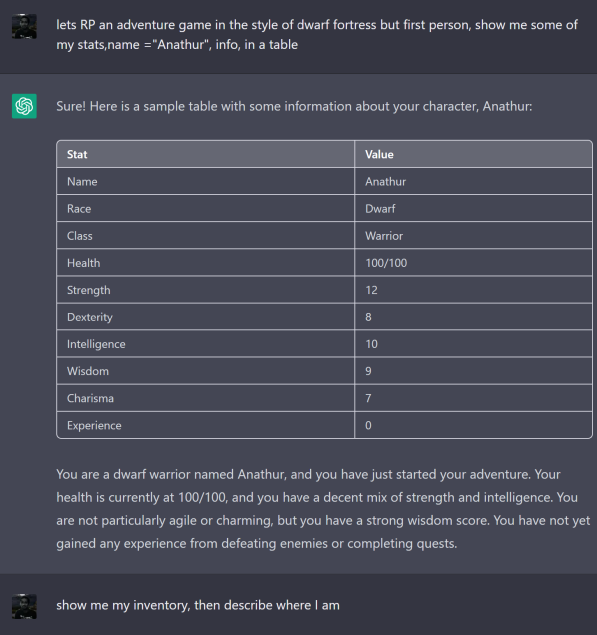Harnessing AI: A New Frontier in the Battle Against Aging
Developing New Drugs and Therapies
AI is revolutionizing drug discovery and therapy development, targeting the underlying causes of aging. Researchers at the University of California, San Francisco, for instance, are employing AI to develop new drugs aimed at senescent cells, the damaged cells that accumulate in our bodies over time and contribute to the aging process. Additionally, AI can analyze vast amounts of data to discover previously unknown links between molecules, genes, and aging, paving the way for innovative therapies.
At the University of Surrey, an AI model was built to identify chemical compounds that promote healthy aging, potentially leading to pharmaceutical innovations that extend a person's lifespan. The model, based on the DrugAge database, predicted the compounds' impact on the lifespan of Caenorhabditis elegans, a worm with a metabolism similar to humans. The AI identified three compounds with an 80% chance of increasing the worm's lifespan: flavonoids, fatty acids, and organooxygens. This breakthrough demonstrates AI's potential to revolutionize the identification of compounds with anti-aging properties.
Identifying Biomarkers of Aging
AI is being harnessed to identify biomarkers of aging, which are measurable indicators of biological processes or conditions. By pinpointing these biomarkers, researchers can gain a deeper understanding of the mechanisms of aging, which can ultimately lead to the development of more effective treatments. Machine learning algorithms can process and analyze large datasets, expediting the discovery of potential biomarkers that could be used as therapeutic targets.
Personalizing Anti-Aging Treatments
AI's ability to analyze and interpret individual factors such as age, health, and lifestyle enables the development of personalized anti-aging treatments tailored to each person's unique needs. This approach increases the likelihood of successful outcomes and reduces the risk of adverse effects. By utilizing machine learning algorithms and integrating data from various sources, AI can create comprehensive, personalized treatment plans that optimize effectiveness.
AI in Preclinical and Clinical Settings
AI has led to broader and less biased approaches for the discovery of potential therapeutics. Platforms like PandOmics use AI to discover new therapeutic targets for various diseases, easing and speeding up the discovery of potential drug candidates. AI-based approaches are also being used in preclinical settings, such as identifying potent mitophagy inducers that diminish Tau pathology and improve memory in Alzheimer's disease mouse models. Researchers are also optimizing and upscaling methods of preclinical testing for faster and cheaper drug discovery. AI-based software to track motion data of model organisms, like drosophila and mice, can be used to study movement as features of healthspan as well as survival data.
Discovering Senolytics with AI
AI-driven platforms have been used to identify novel anti-aging senolytics, compounds that selectively induce apoptosis in senescent cells. Integrated Biosciences, for example, trained deep neural networks on experimentally generated data to predict the senolytic activity of any molecule. Using this AI model, they discovered three highly selective and potent senolytic compounds from a chemical space of over 800,000 molecules. These compounds displayed chemical properties suggestive of high oral bioavailability and had favorable toxicity profiles in hemolysis and genotoxicity tests. Structural and biochemical analyses indicated that all three compounds bind Bcl-2, a protein that regulates apoptosis and is also a chemotherapy target. Experiments testing one of the compounds in 80-week-old mice, roughly corresponding to 80-year-old humans, found that it cleared senescent cells and reduced expression of senescence-associated genes in the kidneys. This research underscores the potential of leveraging deep learning to discover effective senotherapeutics.
Conclusion:
The application of AI in the field of aging research holds immense promise for the development of groundbreaking therapies and a deeper understanding of the aging process. As AI continues to develop and its capabilities expand, its role in the fight against aging will become increasingly important. The discovery of new drugs, identification of biomarkers, personalization of treatments, and advancements in preclinical and clinical settings demonstrate the transformative impact of AI on aging research.
Article written with help from OpenAI GPT



Comments
Post a Comment